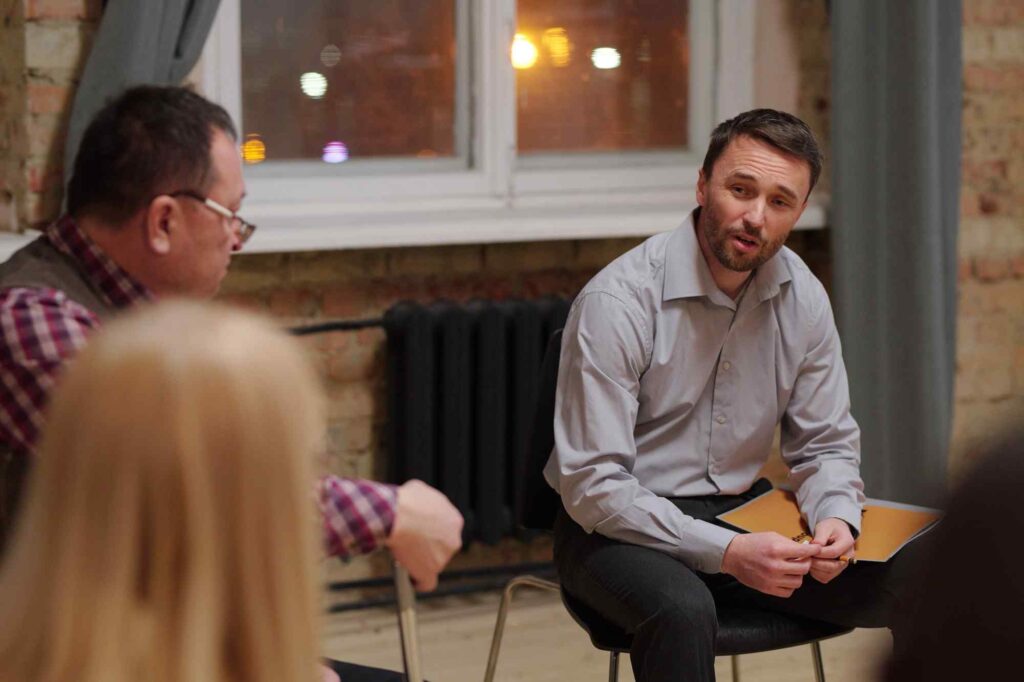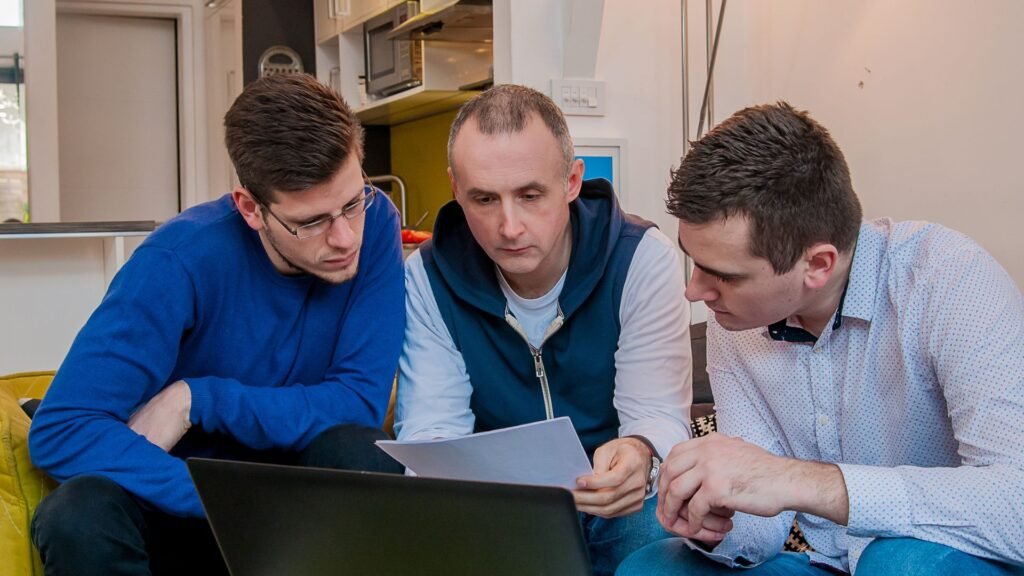Helping people change their behavior—whether related to health, addiction, or personal growth—is often more complex than giving advice or setting goals. It requires understanding how individuals think about change, why they may feel stuck, and what helps them move forward. Motivational interviewing (MI) and the stages of change model are two widely recognized approaches that address these challenges.
In this article, we’ll explore how motivational interviewing and the different stages of change work together to facilitate behavior change. We’ll break down the different stages and examine how MI enhances each step in the change process.

What is Motivational Interviewing?
Motivational interviewing (MI) is a collaborative, person-centered communication approach designed to strengthen an individual’s motivation and commitment to change. Originally developed by William R. Miller and Stephen Rollnick, MI is widely used in health care, substance use treatment, and behavioral counseling. It helps individuals explore and resolve ambivalence while building their confidence and readiness to change behavior.
At the core of motivational interviewing are four key processes that guide the conversation:
- Engaging builds a trusting, respectful relationship that lays the foundation for open dialogue.
- Focusing helps identify and clarify a specific behavior or goal that the individual may want to change.
- Evoking draws out the individual’s reasons for change, often leading to change talk and increased motivation.
- Planning involves developing a realistic, personalized change plan once the individual is ready to take action.
These processes are supported by the principles of motivational interviewing, which reflect its core guiding approach:
- Expressing empathy through active, reflective listening
- Developing a discrepancy between current behaviour and personal goals or values
- Rolling with resistance by adjusting the approach instead of confronting it
- Supporting self-efficacy to reinforce the individual’s belief that change is possible
Understanding the Transtheoretical Model of Change
The stages of change model, also known as the transtheoretical model, describes behavior change as a dynamic process, not a single event. It identifies a series of phases individuals typically go through when deciding to change behavior. Rather than viewing people as “ready” or “not ready,” this model acknowledges that readiness exists along a continuum. It recognizes that change is possible but often involves revisiting stages more than once.
James Prochaska and Carlo DiClemente developed this model through research on smoking cessation and later expanded it to apply broadly to health behaviour change, including substance use disorders.
The five core stages, pre-contemplation, contemplation, preparation, action, and maintenance, each represent a different mindset and level of engagement in the change process. Understanding the stages of change is essential for tailoring communication, support, and intervention strategies to where individuals are in their journey.If you’re unsure where you are in this process or feel ambivalent about taking action, motivational interviewing can help. Explore our program, which uses motivational interviewing alongside the stages of change model to support individuals facing addiction and mental health challenges.

How Motivational Interviewing Supports the Stages of Change
Precontemplation Stage
In the precontemplation stage, individuals are often unaware of the need for change or resistant to it. MI builds trust through empathy and engagement, creating space for honest reflection. Rather than pushing for action, the goal is to help individuals begin noticing how their current behaviour may conflict with their values or goals.
Contemplation Stage
Ambivalence is strongest in the contemplation stage. Individuals are beginning to weigh the pros and cons of change but remain undecided. MI plays a key role by using open-ended questions, reflective listening, and evoking change talk to guide them through their ambivalence and help clarify their reasons for change.
Preparation Stage
In the preparation stage, individuals express readiness and begin planning. MI reinforces their motivation for change and helps develop a realistic, actionable plan aligned with their strengths and goals. Confidence-building is central here, laying the groundwork for the next step.
Action Stage
During the action stage, individuals begin changing their behavior. MI supports this process by affirming effort, addressing new challenges, and reinforcing commitment. Practitioners tailor their approach to maintain momentum and help individuals stay focused on their change plan.
Maintenance Stage
In the maintenance stage, the focus is on sustaining change and preventing relapse. MI helps individuals identify strategies to manage setbacks, reinforce their progress, and build confidence in their ability to maintain positive change. Relapse is viewed as a normal part of the process, not failure.
Final thoughts from Radix Recovery
At Radix Recovery Cedar Rapids, we use motivational interviewing and the stages of change to support individuals in overcoming addiction and mental health challenges. This approach helps people explore their goals, resolve ambivalence, and take action. We empower our clients to build confidence and commit to lasting recovery by facilitating behavior change in a supportive, judgment-free space.






































































































